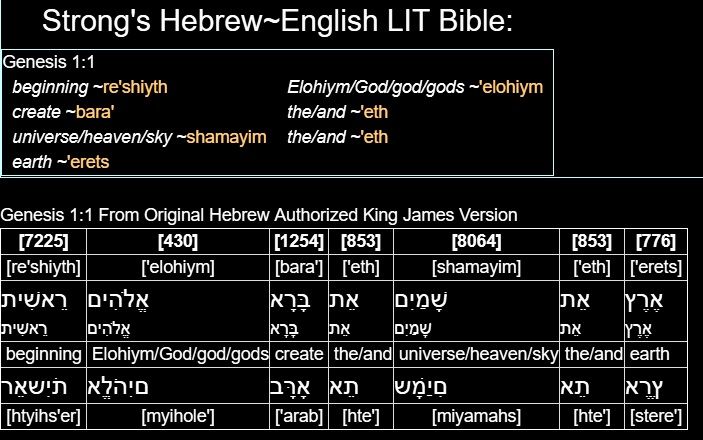| [1161] | [2658] | [1519] | [1191] | [2532] | [3082] | [2532] | [2400] | [5100] | [3101] | [2258] | [1563] | [3686] | [5095] | [5207] | [5100] | [1135] | [2453] | [4103] | [1161] | [3962] | [1672] |
|---|---|---|---|---|---|---|---|---|---|---|---|---|---|---|---|---|---|---|---|---|---|
| [de] | [katantao] | [eis] | [Derbe] | [kai] | [Lustra] | [kai] | [idou] | [tis] | [mathetes] | [en] | [ekei] | [onoma] | [Timotheos] | [huios] | [tis] | [gune] | [Ioudaios] | [pistos] | [de] | [pater] | [Hellen] |
| δέ | καταντάω | εἰς | Δέρβη | καί | Λύστρα | καί | ἰδού | τὶς | μαθητής | ἦν | ἐκεῖ | ὄνομα | Τιμόθεος | υἱός | τὶς | γυνή | Ἰουδαῖος | πιστός | δέ | πατήρ | Ἕλλην |
| also, and, but, moreover, now | attain, come | abundantly, against, among, as, at, (b.. | Derbe | and, also, both, but, even, for, if, o.. | Lystra | and, also, both, but, even, for, if, o.. | behold, lo, see | a (kind of), any (man, thing, thing at.. | disciple | agree, be, X have (+ charge of), hold.. | there, thither(-ward), (to) yonder (pl.. | called, (+ sur-)name(-d | Timotheus, Timothy | child, foal, son | a (kind of), any (man, thing, thing at.. | wife, woman | Jew(-ess), of Judaea | believe(-ing, -r), faithful(-ly), sure.. | also, and, but, moreover, now | father, parent | Gentile, Greek |
| έδ | ωάτνατακ | ςἰε | ηβρέΔ | ίακ | αρτσύΛ | ίακ | ύοδἰ | ςὶτ | ςήτηθαμ | νἦ | ῖεκἐ | αμονὄ | ςοεθόμιΤ | ςόἱυ | ςὶτ | ήνυγ | ςοῖαδυοἸ | ςότσιπ | έδ | ρήταπ | νηλλἝ |
| [ed] | [oatnatak] | [sie] | [ebreD] | [iak] | [artsuL] | [iak] | [uodi] | [sit] | [setehtam] | [ne] | [ieke] | [amono] | [soehtomiT] | [soiuh] | [sit] | [enug] | [soiaduoI] | [sotsip] | [ed] | [retap] | [nelleH] |
Acts16:1 From Original Authorized King James VersionActs 16:1 Then came he to Derbe and Lystra: and, behold, a certain disciple was there, named Timotheus, the son of a certain woman, which was a Jewess, and believed; but his father was a Greek:
Acts 16:1 Then came he to Derbe and Lystra: and, behold, a certain disciple was there, named Timotheus, the son of a certain woman, which was a Jewess, and believed; but his father was a Greek:
Acts16:1 Strong's Greek~English LIT Bible:
Acts 16:1
also, and, but, moreover, now ~de
attain, come ~katantao
abundantly, against, among, as, at, (b.. ~eis
Derbe ~Derbe
and, also, both, but, even, for, if, o.. ~kai
Lystra ~Lustra
and, also, both, but, even, for, if, o.. ~kai
behold, lo, see ~idou
a (kind of), any (man, thing, thing at.. ~tis
disciple ~mathetes
agree, be, X have (+ charge of), hold.. ~en
there, thither(-ward), (to) yonder (pl.. ~ekei
called, (+ sur-)name(-d ~onoma
Timotheus, Timothy ~Timotheos
child, foal, son ~huios
a (kind of), any (man, thing, thing at.. ~tis
wife, woman ~gune
Jew(-ess), of Judaea ~Ioudaios
believe(-ing, -r), faithful(-ly), sure.. ~pistos
also, and, but, moreover, now ~de
father, parent ~pater
Gentile, Greek ~Hellen
Samekhi's Greek LTR-RTL Greek Hebrew Bible Project
Acts 16:1
Strong's Dictionary Number: [1161] |
Strong's Dictionary Number: [2658] |
Strong's Dictionary Number: [1519] |
Strong's Dictionary Number: [1191] |
Strong's Dictionary Number: [2532] |
Strong's Dictionary Number: [3082] |
Strong's Dictionary Number: [2532] |
Strong's Dictionary Number: [2400] |
Strong's Dictionary Number: [5100] |
Strong's Dictionary Number: [3101] |
Strong's Dictionary Number: [2258] |
Strong's Dictionary Number: [1563] |
Strong's Dictionary Number: [3686] |
Strong's Dictionary Number: [5095] |
Strong's Dictionary Number: [5207] |
Strong's Dictionary Number: [5100] |
Strong's Dictionary Number: [1135] |
Strong's Dictionary Number: [2453] |
Strong's Dictionary Number: [4103] |
Strong's Dictionary Number: [1161] |
Strong's Dictionary Number: [3962] |
Strong's Dictionary Number: [1672] |
Verses -> 1 2 3 4 5 6 7 8 9 10 11 12 13 14 15 16 17 18 19 20 21 22 23 24 25 26 27 28 29 30 31 32 33 34 35 36 37 38 39 40
The King James version of the Bible is Public Domain.


🌈Pride🌈 goeth before Destruction

When 🌈Pride🌈 cometh, then cometh Shame
Bible News
- The Greek Word Pharma in Revelation 18:23, Does it Refer to Big Pharma? - Thu, 07 Apr 2022 13:09:12
- If you are a country club church working out of a country club building who wants to have a Country Club Church Website... - Sat, 26 Feb 2022 20:45:41
- Gematria of the Egyptian Hieroglyphs - Fri, 25 Feb 2022 16:26:48
- Oldest Manuscript P47 shows Σ Sigma not Ξ Samekh for 60 in the 666 from Revelation 13:18 - Sun, 20 Feb 2022 09:30:56
- What does biblical “inerrancy” mean? | Richard Ostling - Patheos - Sun, 20 Feb 2022 09:29:08
- DC museum unveils rare 1,000-year-old Hebrew Bible - The Times of Israel - Fri, 18 Feb 2022 22:54:59
- Ancient Canaanite temple with statues of Baal found in southern Israel - Haaretz - Fri, 18 Feb 2022 22:53:28
- Inside the Lachish Temple, the Earliest Example of the Letter Samekh - The Daily Beast - Fri, 18 Feb 2022 22:44:02
- Israeli scholars discover corrections, erasures, revisions in oldest biblical manuscript - Haaretz - Fri, 18 Feb 2022 22:42:27
- Museum of the Bible returns hand-written gospels looted from Greece during the First World War - Art Newspaper - Fri, 18 Feb 2022 22:41:24
- Bible study: Ancient Jewish manuscript analysed using state-of-the-art cameras - Daily Mail - Fri, 18 Feb 2022 22:39:25
- Is a Long-Dismissed Forgery Actually the Oldest Known Biblical Manuscript? - The New York Times - Fri, 18 Feb 2022 22:32:39
- More Dead Sea Scrolls, second oldest Hebrew Bible manuscript, found after 60 years - ThePrint - Fri, 18 Feb 2022 22:30:23
- A Biblical Mystery and Reporting Odyssey: 1883 Fragments - The New York Times - Fri, 18 Feb 2022 22:24:46
- Lost Bible Fragment Recovered Among Dead Sea Scrolls | Lost Bible Fragment Recovered Among Dead Sea Scrolls - Patheos - Fri, 18 Feb 2022 22:14:35
- African Script Sheds Light on Evolution of Writing - DISCOVER Magazine - Fri, 18 Feb 2022 21:47:13
- Evidence of ‘biblical giants’ found in northern Israel - The Jerusalem Post - Fri, 18 Feb 2022 21:39:06
- Oldest precursor to letter S aka Samekhi was found in nine-letter Canaanite text unearthed in Israel - Fri, 18 Feb 2022 21:39:06
- In Tigray, Christianity May Be Erased - FSSPX.Actualités - FSSPX.News - Fri, 18 Feb 2022 14:12:41
- Rocket Science Confirms Biblical Creation - Answers In Genesis - Fri, 18 Feb 2022 13:28:44
.jpg)
Christian how we Support the Ministry
Industrial Electronic Repair
Industrial Monitor Repair
Power Supply Repair
ebay
Manufacture's Repaired
A B C D E F G H I J K L
M N O P Q R S T U V W X Y Z
Simple Rules for this Site!
Posted by Webmaster on Saturday, August 31 2002
- Web-Ministry is intended for the Glory of God.
- Please try to be respectful of God and to be reverent toward His Word, which is the Holy Bible.
- Some may not be Christian nor agree with Christian theology in general, but please be respectful of those that do and to Christendom in general.
- People from all walks of life and backgrounds of faith are welcome here, including the backslidden and nonbelievers, as well.
- We may not all agree... but we can agree to disagree, at least.
- However, any potential disagreements still need to remain civil in nature, and should stay as such.
- Please, just debate the points of your position, if necessary, and refrain from ad hominem attacks. Slandering and name calling serve no productive purpose.
- Posting rules are based upon decent conduct and generally acceptable chat behavior and, also, on Christian beliefs and morals found in the Holy Bible.
- Please refrain from using offensive language or obscenely suggestive innuendo.
- Usernames that are not becoming of basic common decency and morality are not to be used and may possibly result in membership cancellation.
- Refusing to follow forum rules may result in membership cancellation and possibly some or all applicable posts being deleted and if necessary... entire threads.
- If you feel these things to be unacceptable, please find another forum to post on.Thank you.
- dp,webmaster,Chrysoprasus,wilshine
Jesus Christ Forums
To the Glory of Jesus Christ!
Jesus Christ Forums Software Testing
Radio for Jesus 24/7
Hosted by $SamekhiAmI

Surplus by Samekhi
OR
Cash app $SamekhiAmI
Manufacture's Repaired
A B C D E F G H I J K L
M N O P Q R S T U V W X Y Z
Web-Ministry Created this page in 0.144863 seconds